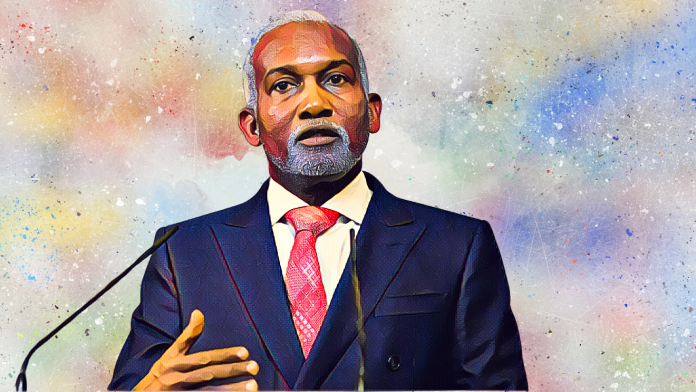KEY POINTS
-
Nigeria denies Christian genocide allegations, calls them misleading.
-
Government says 13,500 terrorists killed, 17,000 arrested.
-
U.S. lawmakers, Trump and China trade sharp words.
Nigeria’s government has dismissed claims of systemic persecution of Christians, describing them as false narratives driven by foreign lobbyists, particularly in the United States. Officials say the reports distort Nigeria’s complex security challenges and inflame religious tensions.
At a briefing in Abuja, Minister of Foreign Affairs Yusuf Tuggar said Nigeria remains a secular democracy where all citizens enjoy freedom of religion. “Recent external claims suggesting systemic religious persecution in Nigeria are unfounded, inaccurate, and fail to reflect our pluralistic society,” he said.
Tuggar, represented by ministry official Dunoma Ahmed, urged international observers to rely on verified local data before making conclusions about Nigeria’s internal affairs.
Government defends security record and religious tolerance
The administration said the claims of Christian genocide are politically motivated. Tuggar reaffirmed that Christians and Muslims hold leadership positions across government, noting that Nigeria’s secular constitution prohibits religious bias.
He highlighted the roles of inter-faith groups such as the Christian Association of Nigeria and the Supreme Council for Islamic Affairs in promoting harmony. “Policies and institutions operate without religious bias,” he said.
The minister also challenged Nigeria’s recent designation by Washington as a “Country of Particular Concern,” calling it misinformed and based on speculation.
Minister of Information Mohammed Idris said security forces have killed over 13,500 terrorists and arrested 17,000 suspects since President Bola Tinubu took office in 2023. More than 9,800 victims of abduction have been rescued, he added.
“It is wrong to claim that any religion is targeted,” Idris said. “Terrorism in Nigeria affects everyone—Christians, Muslims and others alike.”
He cited operations such as Hadin Kai and Lake Sanity, which have reclaimed territory from Boko Haram and ISWAP militants. According to Idris, over 124,000 insurgents and their families have surrendered, handing over more than 11,000 weapons.
He said the Tinubu administration is restructuring the military to “infuse fresh energy, innovation and accountability” into national defence.
Keyamo writes Trump, rejects genocide accusation
Minister of Aviation Festus Keyamo wrote to U.S. President Donald Trump refuting claims of Christian genocide. He said such accusations are “simply not true” and don’t reflect realities in Nigeria.
In the letter, Keyamo said he was born and raised a Christian and would not serve in any government that persecutes Christians. “The insecurity we face affects adherents of all faiths,” he wrote.
Keyamo urged Trump to deepen cooperation with Nigeria rather than rely on “inaccurate external narratives.” He said President Tinubu is a moderate leader with strong ties to Christian communities.
Human rights lawyer Femi Falana accused Trump of spreading false claims about a “Christian genocide.” Speaking on Channels TV, he said violence in Nigeria is largely criminal and economic, not religious.
“Trump has lied to the whole world,” Falana said. “The killers are not driven by faith but by ransom and control of land.”
Falana said the conflicts in Benue and Plateau states are mostly over grazing rights, not religion. He urged the government to focus on addressing its internal security failures.
U.S. senators and China clash over Nigeria
U.S. senator Ted Cruz vowed to publish names of Nigerian officials allegedly involved in religious persecution, saying sanctions should follow Nigeria’s designation as a “Country of Particular Concern.”
Another U.S. lawmaker, Riley Moore, attacked China for criticising Trump’s proposed military response to Nigeria. “China has no right to dictate our foreign policy,” Moore said on X.
Beijing had earlier condemned Trump’s remarks, insisting that no country should interfere in Nigeria’s internal affairs under the guise of human rights or religion.



